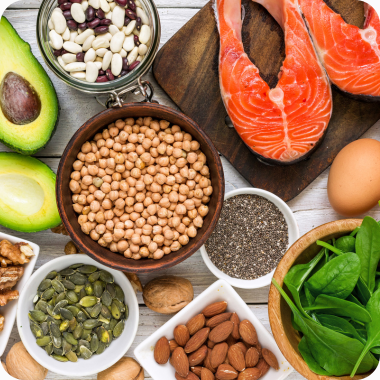What is uric acid?
The
Uric Acid is a substance produced in our body when it breaks down certain components, known as
purines, found both in our bodies and in various foods and drinks. Examples of foods high in purines are liver, anchovies, mackerel, dried beans, peas and beer.
Normally, uric acid dissolves in the blood, is transported to the kidneys, and is eventually eliminated from the body through urine. However, if the body produces too much uric acid or fails to eliminate it sufficiently, then health problems can occur. This condition, where the levels of uric acid in the blood are higher than normal, is called hyperuricemia.
To find out if your blood uric acid levels are normal, you can do a simple blood test. A urine test is also available for the same purpose.
Causes of Uric Acid
The high prices
uric acid in the blood can occur if your body makes too much uric acid or doesn't get rid of it enough. This can be due to various factors and
cause is covered, such as:
- Diuretic drugs (which help the body eliminate fluids)
- Alcohol abuse
- Renal failure
- Psoriasis
- Heredity
- High blood pressure
- Immunosuppressive drugs
- Hypertension
- Obesity
- Coronary artery disease
- Diet rich in purines (liver, dried beans, anchovies, sardines)

Symptoms of uric acid
When blood uric acid levels are higher than normal, there may not be obvious symptoms right away. However, over time, this condition can cause health problems such as gout and kidney problems.
Often
symptoms which has it
Uric Acid is:
- Swelling of the joints
- Hot joints
- Pain on the back
- Frequent urination
- Cloudy urine, with blood or with a bad smell
- Nausea or vomiting
- Discoloration or shiny skin around the joints
Low uric acid levels are less common, but can cause frequent urination, which in turn can lead to dehydration.
Factors That Increase Uric Acid
Increased uric acid in the blood can arise from various
factors is covered, such as:
- Excess weight: People who are overweight have a higher risk of having higher uric acid levels.
- Diet: Foods that contain a lot of purines, such as liver, dried beans, anchovies, sardines can increase uric acid levels.
- Kidney problems: When the kidneys don't work properly, either due to damage or injury, they can't filter waste effectively, causing uric acid to build up in the blood.
How is high uric acid diagnosed?
For the right one
diagnosis of high uric acid the doctor will start by asking about your symptoms and medical history. He may do some tests to see if you have symptoms related to uric acid arthritis or kidney stones. He may suggest that you take a test that measures uric acid in your blood or urine. Another test involves removing some fluid from a swollen joint to check for uric acid, which would indicate arthritis.
Treatment of uric acid
Η
treatment for uric acid includes measures aimed at reducing the production of uric acid and increasing its elimination from the body. These are:
- Weight loss: If you are overweight, losing weight can help lower uric acid levels.
- Dietary changes: Eating a diet low in purines is recommended, as well as avoiding the consumption of alcoholic beverages, especially beer and liquor.
- Medication: There are various medications that can be used to reduce the production of uric acid or increase its elimination.
- Fluid consumption: Drinking plenty of fluids can help eliminate uric acid through urination.
With proper management and
maintaining a healthy lifestyle, uric acid levels can be kept within healthy limits, offering the patient a better quality of life.
Foods that increase uric acid
- Sugary drinks and sweets
- Alcohol
- Liver
- Game meats (goose, deer)
- Some seafood (herring, scallops, mussels, tuna)
- Red meats (beef, lamb, pork, bacon)
- Turkey
- Sauces
- Yeast

Foods that drop uric acid
There are some
foods with few purines
that throw the levels of
uric acid. Some of them are:
- Yoghurt
- Coffee
- Tea
- Low fat milk
- Banana
- Cherry
- Nuts
- Cereal for energy
- Potatoes
- Rice
- Bread
- Pasta
- Eggs (but not too many)
- Salmon
- Chicken
- Vegetables
Sources:
Gout (Low Purine) Diet: Best Foods to Eat & What to Avoid,
Natural Ways to Reduce Uric Acid in the Body,
Uric acid - blood,
High uric acid level Causes,
Uric Acid: Symptoms, Causes, Diagnosis, and Treatment
PHARMACIST, M.Sc.
CEO Wecare IKE















